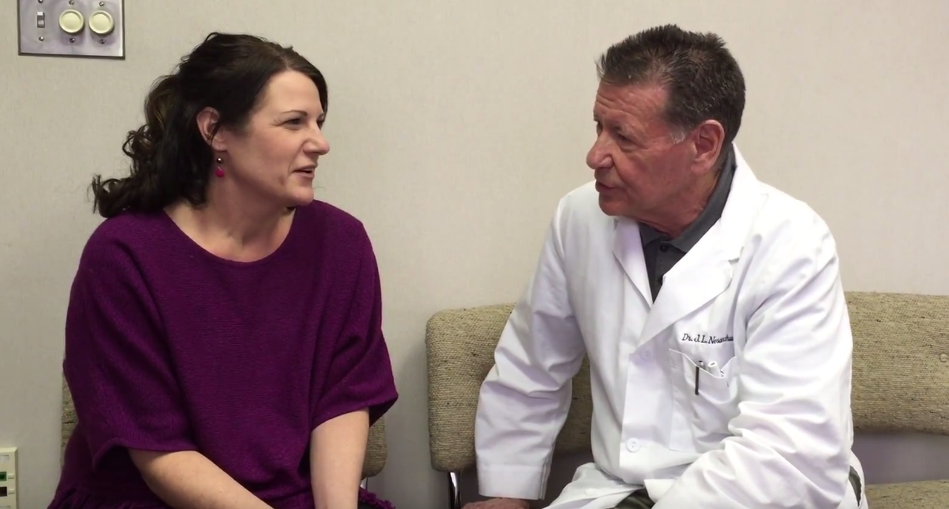
Dr. N provides bio-identical treatment regimens that will resolve your hot flashes, sweats, sleep disturbances, headaches, fatigue, depression and give you back your sex life. Our goal is for every one of our menopausal patients to be able to say … I’m Back to being me.
Libido & HRT
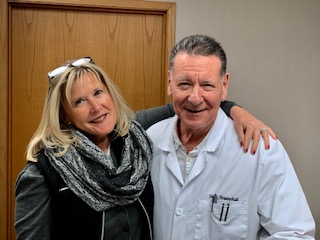
There just doesn’t seem to be any way of getting around it. If you’re menopausal, by definition sex hormone deficient, and would like to be at your optimum sexually, you will need to replace your hormones.
This section addresses the role of sex hormones in maintaining libido and sexual function. It discusses the manner in which the fall in sex hormone levels that accompany a natural, or surgical menopause, or medications may affect your sexual experience and provides treatment options to restore sexual desire and function.
Menopausal women, without the benefit of hormone replacement, may be capable of enjoyable and satisfying sex. They may be capable of great sex. But ultimately they loose the potential, as least as far as sex is concerned, to be the best they can be.
Click on the link below to go to Dr. N’s You Tube Video Channel
Menopause – Symptoms, Sex and Hormones – YouTube
A healthy lifestyle, a positive attitude, exercise, a loving, giving, patient and understanding partner …all are important. But, they can not substitute for adequate hormone levels. It is clear and unequivocal; the integrity of the sexual experience is dependent on sex hormones.
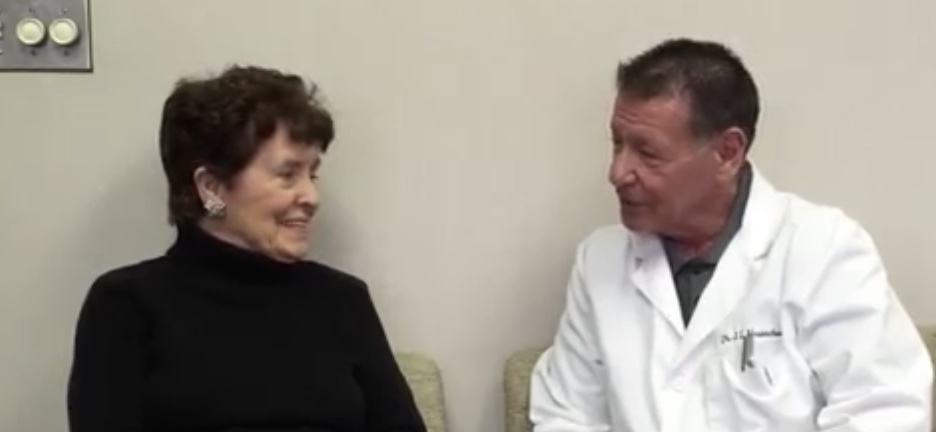
WHAT IS DESIRE PHASE DISORDER?
Diminished hormone levels interfere with optimum sexual function by their affect on sexual desire and hormone sensitive tissues.
Sexual desire, or libido, consists of thinking about sex, fantasizing about sex, the development of “sexual tension” and the awareness of a need for sexual release. Some people may call feeling this way as being “horny”. It motivates us to initiate and participate in sex and if circumstances require, search for a sexual partner.
Lack of, or diminished sexual desire and loss of sexual motivation is sometimes referred to as a “desire phase” disorder.
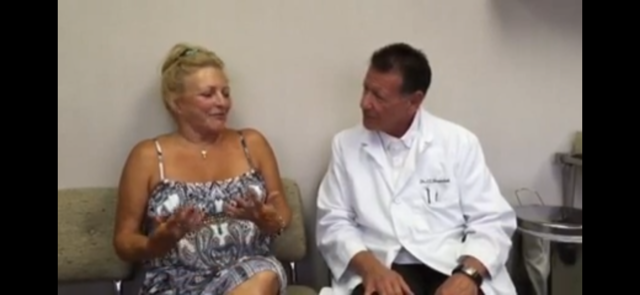
ARE THERE DIFFERENCES IN HOW WOMEN ARE AFFECTED?
A postmenopausal woman’s decrease in libido can range widely, from a barely noticeable fall in sexual interest to a “sexual aversion” where the very thought of being touched in a sexual context is repulsive. A number of patients have told me, ” I feel dead from the waist down”, to describe their lack of sexual interest. Several who were effected to a lesser extent have shared, that although they really had no interest in sex or in initiating sexual contact, once they were aroused by direct stimulation, the sexual activity was welcomed and enjoyable. I have found that some women evidence little concern over their loss of libido and have no interest in restoring it. And this is the very essence of not having a libido. Other women are devastated by their loss and are interested in pursuing any reasonable treatment that will allow them to regain their previous sexuality.
Unfortunately, many women who speak to their physician because they are troubled about a low sex drive are subjected to the response, “How are things at home?” Next, they are referred to a psychiatrist, counselor or psychologist before their hormonal status or a hormone replacement therapy program is considered. Certainly, stressful life events, health, psychological or relationship problems influence libido, but these factors should only be considered along with the menopausal woman’s hormonal status.
WHAT CAUSES A DECLINE IN SEXUAL DESIRE?
The decline in sexual desire is a direct result of diminished sex hormone levels in the brain itself. Although estrogen plays a part, the hormone that has been shown to be most closely associated with sex-drive is testosterone.
The ovary, although incapable of producing estrogen after a “natural” menopause, may continue to produce significant amounts of testosterone for several years. This is the reason why many women maintain a good sex-drive for a considerable length of time. These testosterone levels provide additional benefits to the naturally menopausal woman. Tissues of the body are able to convert some of this circulating testosterone to estrogen. This is the mechanism by which some naturally menopausal women have fewer and less severe symptoms and health problems. If a postmenopausal woman were to undergo removal of her ovaries, this benefit would be lost.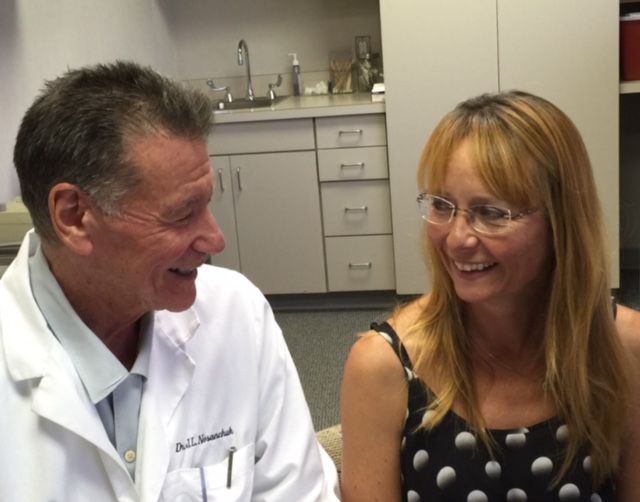
WHAT ABOUT PREMENOPAUSAL WOMEN WHO HAVE HAD A HYSTERECTOMY?
If the surgery is performed prior to menopause and the ovaries are preserved and their hormone secretion is unaffected, there may be no change in libido following the post-operative healing period. In fact, some women experience a post-surgical increase in sexual desire if prior to the surgery they had been distracted by heavy bleeding or significant pelvic pain. There is evidence, however that in this group of patients, ovarian failure occurs up to 50% of the time within 3 years following the surgery. If this happens, a diminished libido and menopausal symptoms would reflect the decline in hormone levels. Some physicians are not aware of the frequency of ovarian failure following hysterectomy. I have seen many patients in this category, whose physicians simply did not believe their symptoms were related to the surgery.
If the surgery is performed prior to menopause and the ovaries are removed, the fall in estrogen and testosterone levels is abrupt and severe. As would be expected this type of surgically induced menopause almost always, results in a dramatic fall in sexual desire.
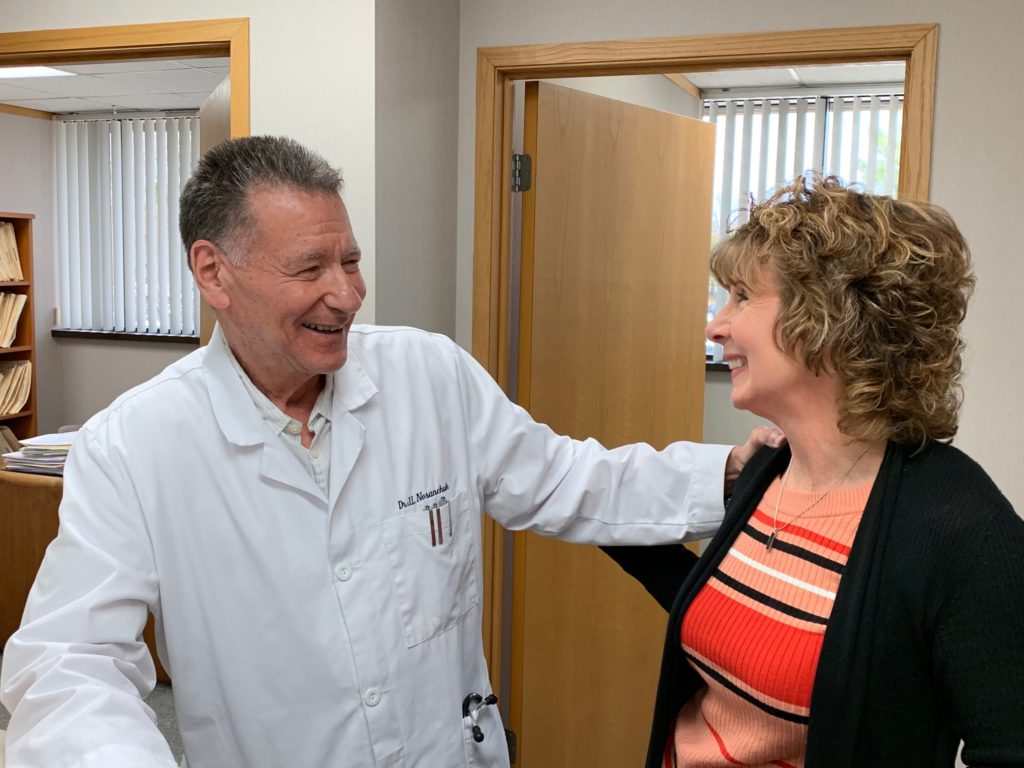
IS THERE ANYTHING ELSE THAT CAN CAUSE PROBLEMS WITH MY SEX DRIVE AFTER MENOPAUSE?
Significant health problems, depressive illnesses, relationship problems and certain medications can affect libido.
WHAT ARE SOME OF THE MEDICATIONS THAT CAN CAUSE A PROBLEM?
A class of anti-depressants, SSRI’s frequently depress both libido and potential for orgasm. I have had several patients express a concern over a fall in their libido who had recently begun treatment with an SSRI, not realizing that this was the cause. Occasionally, delayed ejaculation or inability to ejaculate develops in men who are not aware of this side effect and can lead to conflict in a relationship if the couple doesn’t realize the medication is responsible.
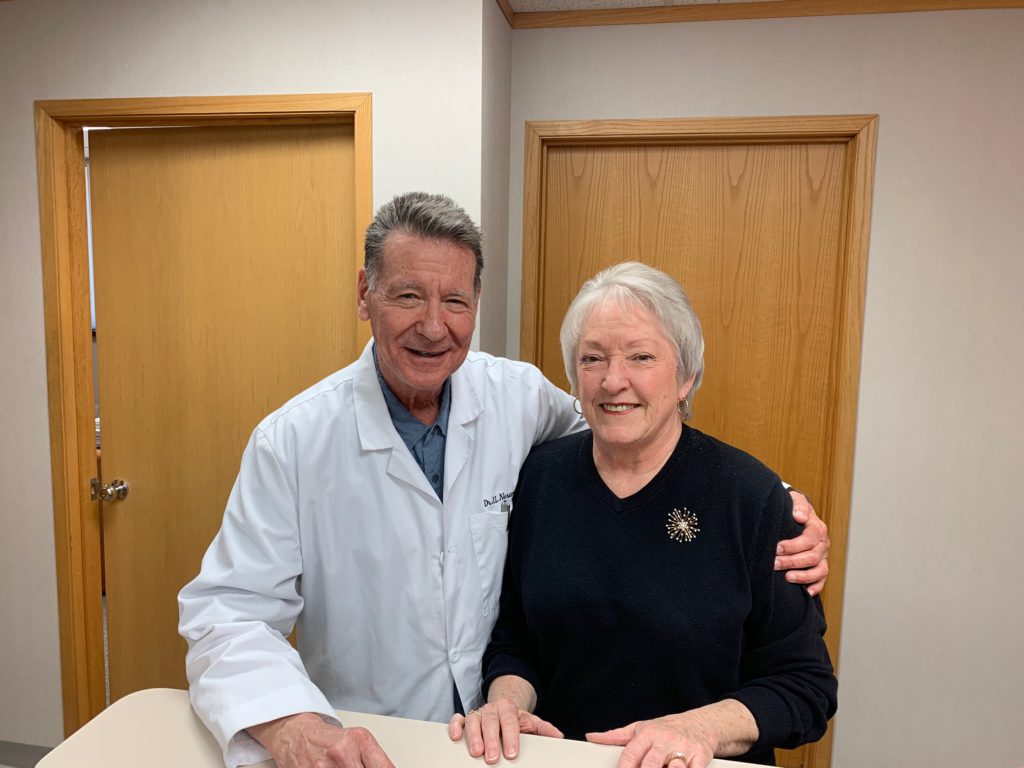
Orally administered estrogen replacement medications and oral contraceptives are absorbed by the gastrointestinal tract and reach the liver in a “bolus”. This so called “bolus effect”, induces the liver to increase its production of a substance, “sex hormone binding globulin” (SHGB) which binds to circulating testosterone, leaving less “unbound” or “free” testosterone available to maintain libido. This is not well known and is often not recognized as a cause for a diminished libido.
How long will hormone replacement therapy maintain my sexual desire?
Treatment with non-oral bio-identical estrogen and testosterone in sufficient amounts will maintain sexual desire indefinitely as long as the menopausal woman continues to be in a reasonable state of health.
A number of years ago a television journalist who had been using me as a source for menopausal issues contacted me. He wanted to know if I would be able to find a woman for an on-air news segment who was over 50 and still wanted to have sex. I told him I would see what I could do. Arrangements were made for an on-scene interview to be taped at my office the following week.
The journalist and his camera crew appeared at the appointed time. I introduced them to June, an attractive woman of 80, who had been on hormone replacement therapy for over 30 years. The interview was broadcast on the evening news the following day to a potential audience of several million. June, an educated articulate woman was not camera shy. She informed the journalist and the viewing public, that she had a “very healthy” libido, enjoyed sex, had intercourse twice a week and was orgasmic. As she was leaving the office she mentioned in private to me that she would be having sex more often if she and her husband were getting along better.
Yes …appropriate hormone replacement therapy is very effective in maintaining libido.
Loss of sexual desire and ability to participate in and enjoy sex is not a normal part of aging. Dr Nosanchuk explains why a menopausal woman’s desire to have sex and her capacity to physically participate in sex are both affected by her menopause…
IMPORTANT: This website is for educational purposes only. It is not intended to suggest a specific therapy for any individual and must not be construed to establish a physician patient relationship.